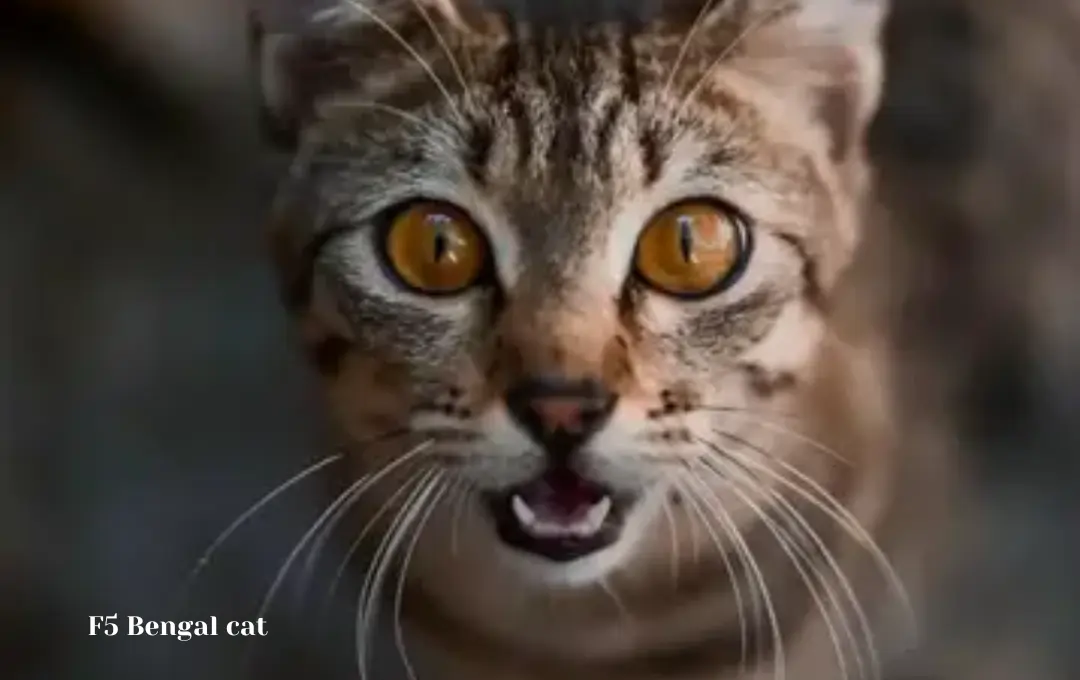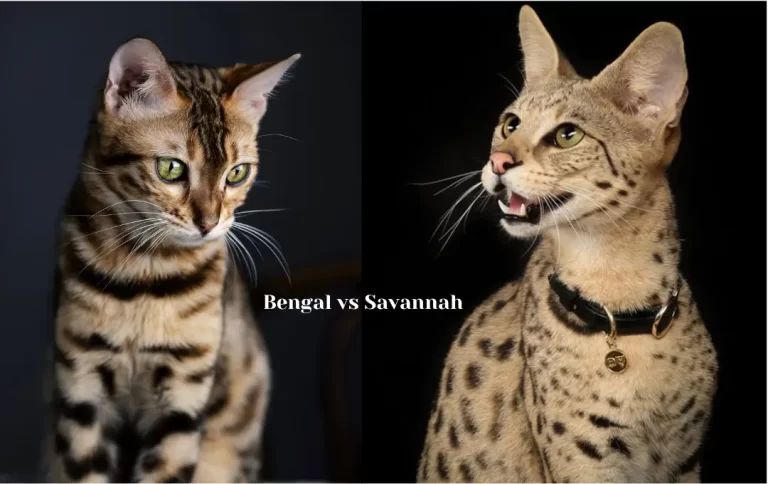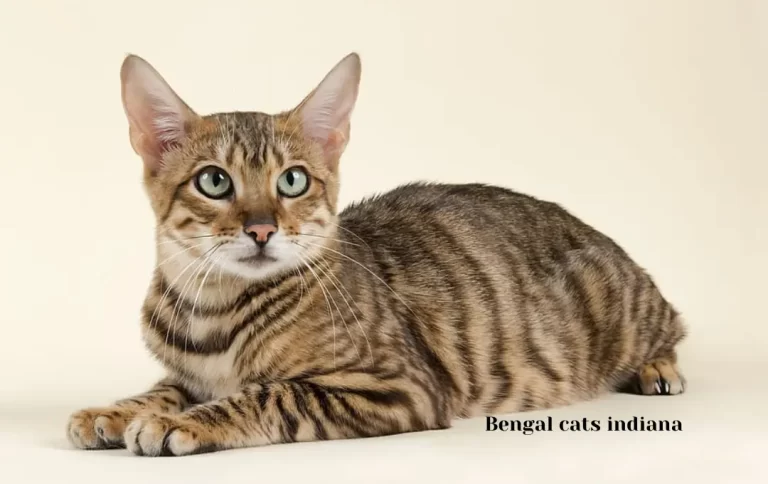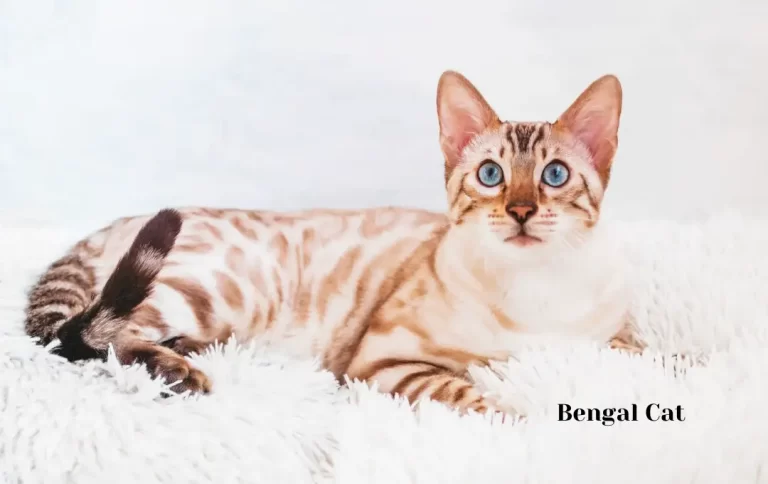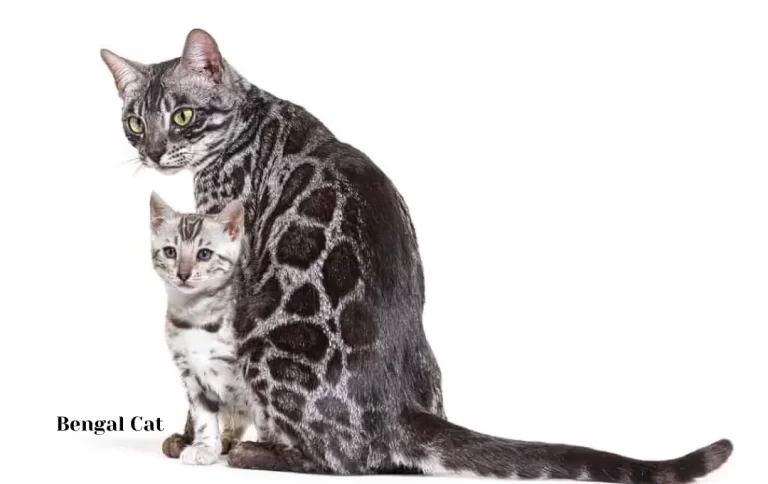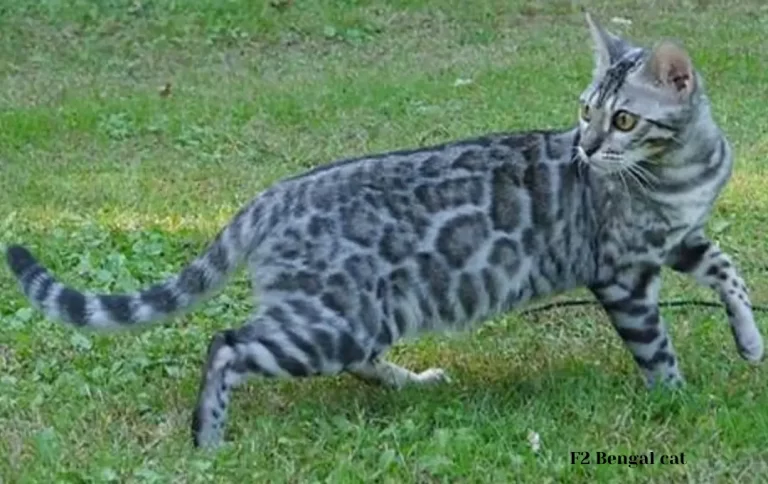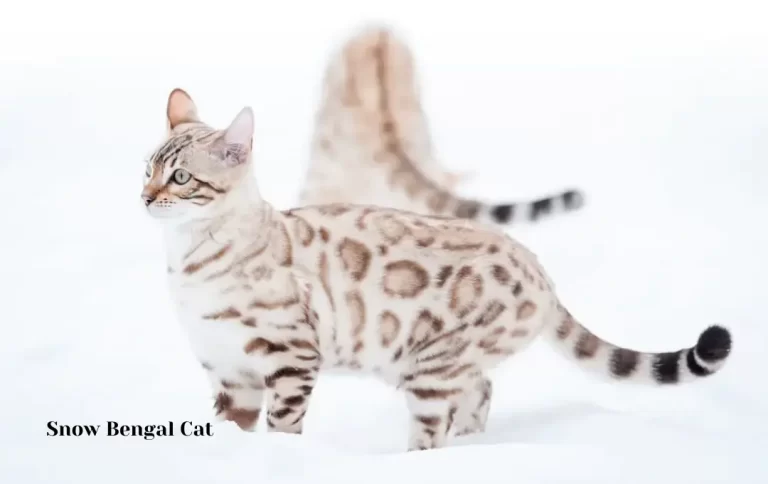Reasonable F5 Bengal cat price | Bengal Cat Prices: Updated Guide for 2023
Bengal cats’ unique looks, striking coat patterns, and vivacious personality have won the hearts of cat lovers all around the world. F5 Bengals are distinct from other generations of Bengal cats in many ways. We shall explore into the interesting world of F5 Bengal cat price in this article. The F5 Bengal cat belongs to the popular Bengal breed, known for its eye-catching coat pattern that is reminiscent of the Asian leopard cat’s wild forebears.
The name “Bengal,” which describes this breed’s wild appearance, comes from the scientific name of the Asian leopard cat, Prionailurus bengalensis. Bengal cats are frequently praised for having a highly captivating coat with mesmerizing spots or marbled patterns made up of contrasting hues like golden, rosette brown, or silver.
What is an F5 Bengal Cat?
Understanding the generation that F5 Bengal cats belong to within the Bengal cat lineage is essential to recognizing what makes them unique. The “F” in F5 stands for “Foundation,” which denotes the number of generations Bengal cats have progressed from their wild ancestor, the Asian leopard cat (ALC). F5 Bengals have a genetic makeup that has a higher proportion of domestic cat DNA than Bengals from earlier generations since they are five generations removed from the ALC.
F5 Bengals are considered domestic cats with a significant infusion of wild blood. They have inherited the striking coat patterns that are characteristic of Bengal cats, with their rosettes, spots, or marbled patterns, depending on their genetics. These cats are known for their athletic build, sleek bodies, and large, expressive eyes. Their coat colors can vary, but they often feature a background color of golden, rust, or cream with contrasting dark markings.
Why Are F5 Bengals Special?
F5 Bengal cats are special for several reasons:
Balanced Temperament: F5 Bengals strike a balance between their wild heritage and domestication. They are known for their active and playful nature, making them delightful companions for families and individuals alike. Their energetic personalities make them well-suited for interactive play and exercise.
Unique Aesthetics: F5 Bengals inherit the captivating coat patterns of their ancestors, with distinctive rosettes and spots that resemble those of the Asian leopard cat. This unique appearance often makes them the center of attention and conversation.
Health and Vigor: With each subsequent generation, Bengal cats tend to become healthier and more robust. F5 Bengals benefit from a lower percentage of wild blood, which can reduce the risk of certain health issues associated with earlier-generation Bengals.
Ownership Legality: In many regions, owning an F5 Bengal cat is less regulated compared to earlier-generation Bengals, which may be subject to stricter ownership laws. This can make the F5 Bengals more accessible to potential owners.
In the world of Bengal cat enthusiasts, F5 Bengals hold a special place as pets that offer a taste of the wild with the reliability and adaptability of domestic cats. As we explore the factors influencing their prices, you’ll gain a deeper understanding of the value these unique felines bring to cat lovers and collectors alike.
Understanding Bengal Cat Generations
Bengal cat generations refer to the degree of separation from their wild ancestor, the Asian leopard cat (ALC). These generations are often designated by an “F” followed by a number, such as F1, F2, F3, and so on. Each generation indicates how many times domestic Bengal cats have been bred with other Bengals and domestic cats.
What Does F5 Mean?
In the context of Bengal cat generations, “F5” stands for “Filial 5.” It signifies that an F5 Bengal cat is five generations removed from the Asian leopard cat. This means that an F5 Bengal has four previous generations of Bengal cat ancestry, making it significantly more domesticated than earlier-generation Bengals.
Overview of Bengal Cat Generations
F1 Bengal Cats: These are the first-generation Bengals, resulting from the direct crossbreeding of an Asian leopard cat with a domestic Bengal cat. F1s have a higher percentage of wild blood and often exhibit more wild behaviors and characteristics.
F2 Bengal Cats: F2 Bengals are second-generation Bengals, resulting from the breeding of an F1 Bengal with a domestic Bengal cat. They still retain a considerable amount of wild blood and may display some wild traits.
F3 Bengal Cats: F3 Bengals are third-generation Bengals, produced by breeding F2 Bengals with domestic Bengals. They have fewer wild characteristics and are closer in temperament to typical domestic cats.
F4 Bengal Cats: F4 Bengals are fourth-generation Bengals, resulting from the breeding of F3 Bengals with domestic Bengal cats. They have a more stable temperament and are considered more suitable as pets.
F5 Bengal Cats: F5 Bengals are fifth-generation Bengals, which means they are five generations removed from the ALC. They have a significant amount of domestic cat genetics and are known for their friendly and social personalities.
How F5 Bengals Differ from Other Generations
F5 Bengal cats differ from earlier-generation Bengals in several ways:
Temperament: F5 Bengals are known for their well-balanced and sociable personalities. They tend to be more adaptable to household environments and are less likely to exhibit overly wild or aggressive behaviors.
Appearance: While F5 Bengals still possess the distinctive coat patterns and physical characteristics of Bengal cats, they may have slightly fewer wild markings and are generally more uniform in appearance compared to F1-F4 Bengals.
Legal Ownership: In many regions, F5 Bengal cats are subject to fewer legal restrictions compared to earlier-generation Bengals. This can make them more accessible to a wider range of cat lovers.
Health: F5 Bengals often benefit from hybrid vigor, which means they may be less prone to certain health issues associated with earlier-generation Bengals.
Understanding Bengal cat generations is essential when considering the personality, appearance, and legal aspects of owning one of these beautiful and unique cats. F5 Bengals, in particular, offer a balance between the exotic appeal of their wild ancestry and the domesticated traits that make them wonderful companions.
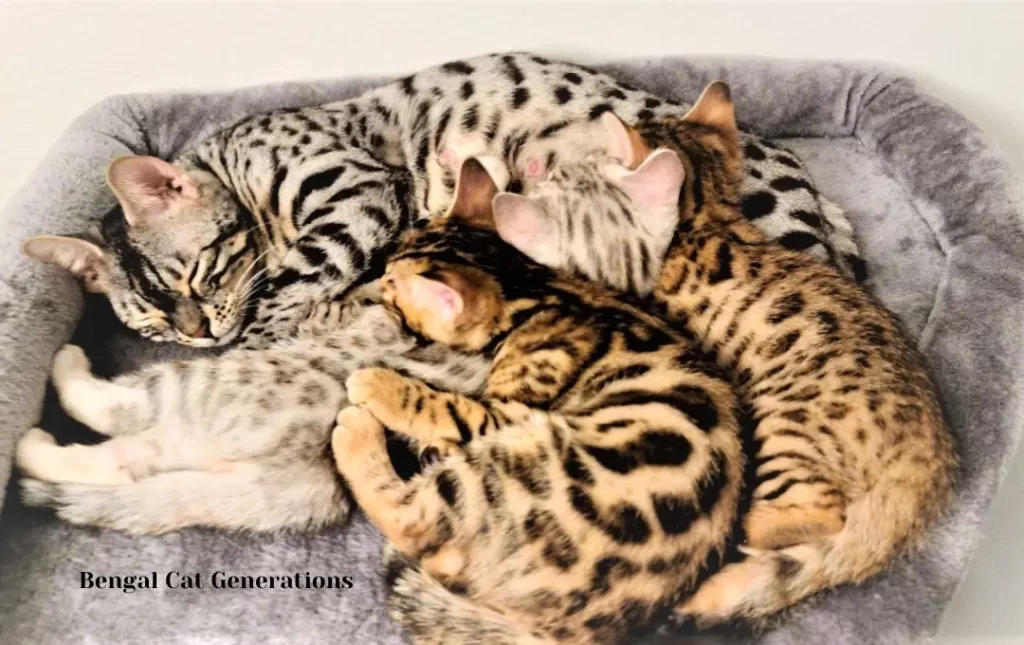
Factors Affecting F5 Bengal Cat Prices
When it comes to determining the price of an F5 Bengal cat, several factors come into play. Understanding these factors can help prospective buyers make informed decisions and ensure they get the best value for their investment.
Breeder Reputation
The reputation of the breeder plays a significant role in the price of F5 Bengal cats. Established and reputable breeders with a history of producing healthy, well-socialized Bengal kittens tend to charge higher prices. Their cats often come with guarantees, certifications, and a track record of producing desirable traits in their kittens.
Pedigree and Bloodline
The lineage and pedigree of an F5 Bengal cat can greatly impact its price. Cats with well-documented pedigrees and bloodlines tracing back to renowned Bengal cat ancestors often command higher prices. Cats from champion bloodlines, with a history of winning in cat shows, are especially sought after and can be more expensive.
Coat Color and Pattern
The coat color and pattern of an F5 Bengal cat can influence its price. Bengal cats come in various coat colors, including brown, snow, silver, and charcoal, each with its own unique appeal. Rarer coat colors and striking patterns, such as high-contrast rosettes or marbling, can increase the cat’s value. Buyers often have preferences for specific coat colors, and breeders may charge more for these sought-after variations.
Health and Genetic Testing
The health and genetic testing of the cat and its parents can impact pricing. Reputable breeders conduct health screenings and genetic testing to ensure their cats are free from hereditary diseases and conditions common in Bengal cats. Kittens from parents with clean bills of health and genetic testing certificates may command higher prices due to the reduced risk of future health problems.
Geographic Location
The price of F5 Bengal cats can vary depending on the region and local demand. In areas where Bengal cats are less common, prices may be higher due to limited availability. Conversely, in regions with a higher supply of Bengal cats, prices may be more competitive. Additionally, the cost of transporting a cat from a breeder to another location can add to the overall price.
Supply and Demand
Supply and demand dynamics in the Bengal cat market can influence prices. When there is a high demand for F5 Bengal cats and a limited supply, prices tend to rise. Conversely, if there are many available F5 Bengal kittens and fewer interested buyers, prices may be more competitive.
In conclusion, F5 Bengal cat price can vary widely based on breeder reputation, pedigree, coat characteristics, health testing, geographic location, and market supply and demand. Potential buyers should carefully consider these factors and conduct thorough research to ensure they are getting a Bengal cat that meets their expectations and budget.
The average cost of F5 Bengal cats
The average price range for F5 Bengal cats can vary significantly based on several factors, as previously mentioned. On average, you can expect to pay anywhere from $800 to $2,500 or more for an F5 Bengal kitten. However, it’s essential to remember that this is just an approximate range, and actual prices may fall outside of it due to the unique characteristics and circumstances of each cat.

What does F5 mean for Bengal cats?
An F5 Bengal cat is a Bengal bred from an F4 Bengal cat and a domestic cat. F5 Bengals are completely domestic and are not regulated anywhere except Hawaii and New York.
Price Variations Across Regions
Prices for F5 Bengal cats can vary from one region to another due to differences in local demand, breeder availability, and cost of living. Here’s a breakdown of price variations you might encounter:
High-Demand Regions: In urban areas or regions with a strong interest in Bengal cats, prices may be on the higher end of the spectrum due to increased demand.
Low-Demand Regions: In areas where Bengal cats are less popular or breeders are more abundant, prices may be more competitive.
International Variations: Prices can vary significantly from country to country, so consider this if you’re open to importing a Bengal cat.
Price Range for Pet Quality F5 Bengals
Most people looking for F5 Bengal cats are interested in them as loving pets rather than show cats. For pet-quality F5 Bengals, you can generally expect to pay within the range of $800 to $1,500. These cats typically meet breed standards but may have minor cosmetic imperfections or disqualifications for the show ring.
Show-Quality F5 Bengal Prices
Show-quality F5 Bengal cats are the cream of the crop and are bred to meet or exceed breed standards. They often come from champion bloodlines and possess the ideal physical and temperamental traits for cat shows. Prices for show-quality F5 Bengals can be significantly higher, ranging from $2,000 to $4,000 or more. Show-quality Bengals are usually sold with breeding rights, but it’s essential to discuss this with the breeder.
Adoption vs. Buying from a Breeder
While purchasing a Bengal cat from a breeder offers more predictability in terms of breed traits and health, adoption can be a rewarding and cost-effective option. Bengal cats, including F5 Bengals, can sometimes be found in shelters and rescue organizations. Adoption fees for Bengal cats are generally lower, ranging from $100 to $300.
When deciding between adoption and buying from a breeder, consider the following:
Adoption: Offers a chance to provide a loving home to a cat in need, but may have fewer choices in terms of breed and age.
Buying from a Breeder: Provides more control over the cat’s lineage, health history, and breed traits, but comes with a higher cost.
Ultimately, the choice between adoption and buying from a breeder depends on your preferences, budget, and willingness to invest in the specific qualities and characteristics you desire in an F5 Bengal cat. Regardless of your choice, remember that providing a loving and responsible home is the most important consideration when bringing a Bengal cat into your life.
Vaccinations and Veterinary Care
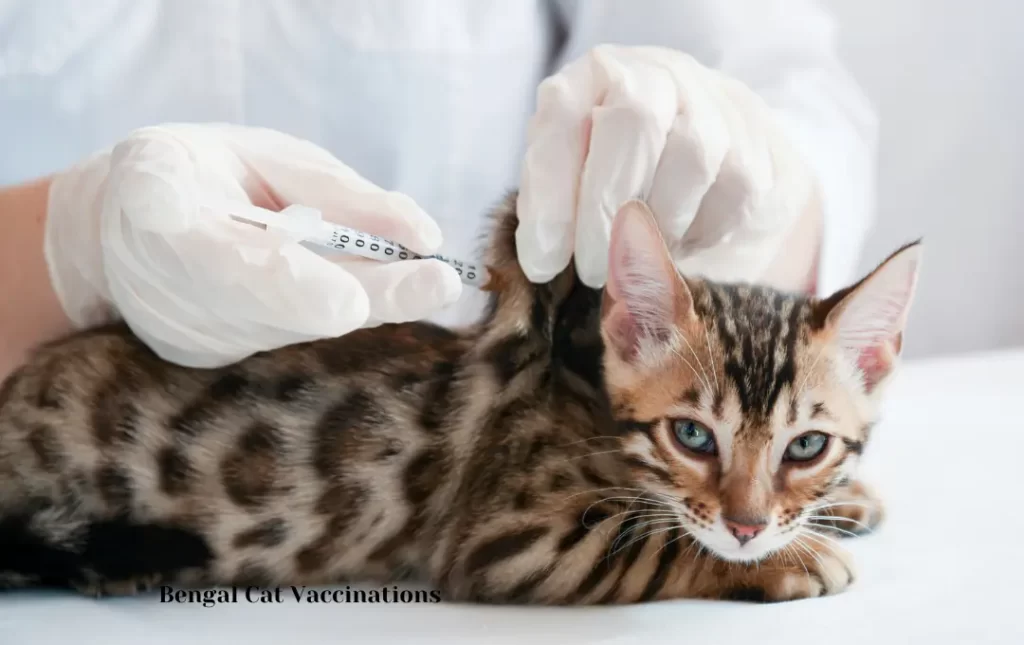
Initial Vaccinations: When you first acquire an F5 Bengal kitten, it will need a series of initial vaccinations to protect against common feline diseases such as distemper and upper respiratory infections. These vaccinations are typically given in a series over the first few months of the kitten’s life and can cost anywhere from $50 to $100 or more.
Annual Check-ups: Bengal cats, like all cats, require regular veterinary check-ups to monitor their health and address any issues that may arise. Annual check-ups, which include vaccinations and wellness exams, can cost around $100 to $200 or more, depending on your location and the specific services provided.
Spaying/Neutering: Unless you plan to breed your F5 Bengal cat, it’s essential to have them spayed or neutered. The cost for this procedure varies but generally ranges from $100 to $300.
Emergency Veterinary Care: Be prepared for unexpected medical expenses in case your Bengal cat faces health emergencies. Costs for emergency veterinary care can range from a few hundred dollars to several thousand dollars, depending on the severity of the condition.
Preventative Medications: F5 Bengal cats may require flea and tick prevention, as well as routine deworming medications. The cost for these preventative treatments varies but should be factored into your annual pet budget.
Cat Accessories and Supplies
Litter Box and Litter: You’ll need a litter box and cat litter. The initial setup cost can be around $20 to $50, and ongoing monthly expenses for litter can range from $10 to $20.
Cat Bed: A comfortable cat bed or blanket for your Bengal to rest on can cost between $20 and $50 or more.
Scratching Posts and Toys: Bengals are active cats that need stimulation. Invest in scratching posts, interactive toys, and play structures, which can range from $20 to $100 or more.
Food and Water Bowls: Quality food and water bowls are essential. Stainless steel or ceramic bowls typically cost between $5 and $20 each.
Food and Grooming Expenses
High-Quality Cat Food: F5 Bengal cats thrive on high-quality cat food, which can be more expensive than generic brands. Expect to spend approximately $20 to $50 per month on cat food, depending on the brand and dietary needs.
Grooming Supplies: Bengal cats have short, low-maintenance coats, so grooming expenses are minimal. You may need to invest in a cat brush and nail clippers, which can cost around $10 to $20.
Dental Care: Regular dental care is essential for your Bengal’s oral health. Dental cleaning products, such as toothbrushes and toothpaste formulated for cats, are relatively inexpensive but important for long-term health.
Specialty Treats: Many Bengal owners enjoy spoiling their cats with special treats. Budget a small amount for treats, typically around $5 to $10 per month.
Remember that these costs can vary depending on your location, the specific needs and preferences of your Bengal cat, and your choice of products and services. It’s crucial to budget for these additional expenses to ensure the health, happiness, and well-being of your F5 Bengal companion.
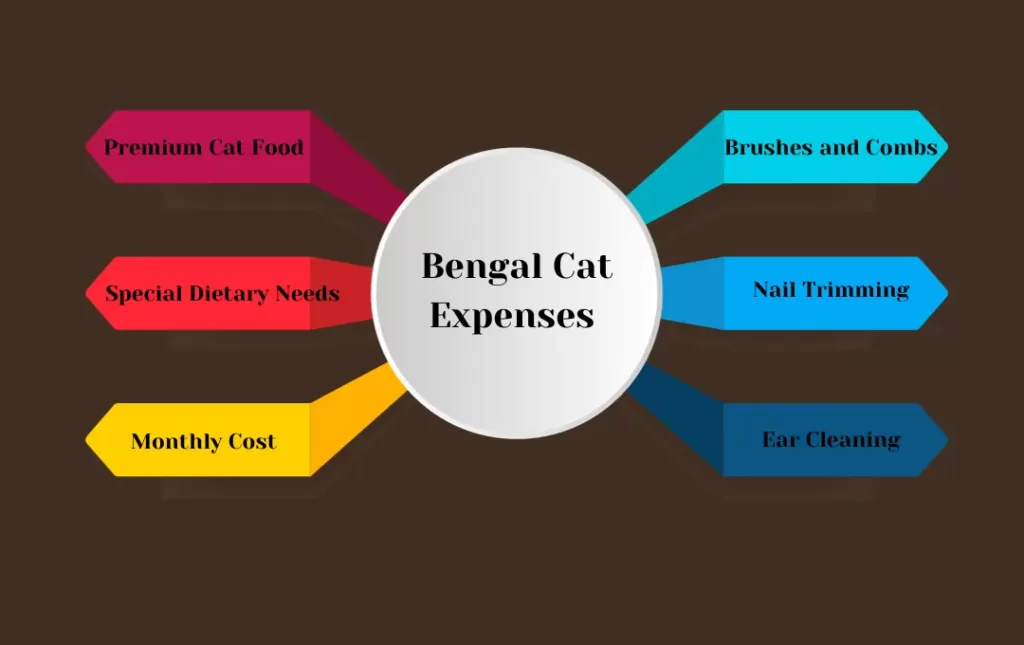
How to Choose a Reputable F5 Bengal Breeder
Start with Online Research:
Begin your search by looking for F5 Bengal breeders online. Reputable breeders often have informative websites or profiles on breeder directories.
Check Breed Clubs and Associations:
Look for breeders who are members of Bengal cat clubs or associations, such as The International Bengal Cat Society (TIBCS). Membership can be an indicator of a commitment to breeding standards and ethical practices.
Ask for Recommendations:
Seek recommendations from other Bengal cat owners, veterinarians, or local cat clubs. Personal referrals can be valuable in finding trustworthy breeders.
Researching Breeders
Examine Their Website or Profile:
A reputable breeder’s website or profile should provide detailed information about their breeding practices, cat care, and available kittens. Look for transparency and professionalism in their online presence.
Review Breeder’s Credentials:
Check if the breeder has relevant certifications or memberships with recognized cat breeding organizations.
Read Reviews and Testimonials:
Look for reviews or testimonials from previous customers. These can offer insights into the breeder’s reputation and the experiences of other buyers.
Ask About Health Testing:
Inquire about the breeder’s health testing practices. They should conduct genetic testing for common Bengal cat health issues, such as PK deficiency and PRA-b.
Visiting Catteries
Schedule a Visit:
Arrange a visit to the breeder’s cattery in person, if possible. This allows you to see the living conditions and meet the cats and kittens.
Observe the Cats’ Environment:
During your visit, pay attention to the cleanliness and overall condition of the cattery. The cats should have adequate space, proper nutrition, and social interaction.
Evaluate the Health of Cats and Kittens:
Observe the cats and kittens for signs of good health, such as bright eyes, clean coats, and playful behavior. Ask about their vaccination history and veterinary care.
Asking the Right Questions
Breeding Practices:
Ask about the breeder’s breeding goals and practices. Reputable breeders aim to improve the breed, prioritize health, and follow ethical breeding standards.
Health Guarantee:
Inquire about the breeder’s health guarantee for the kitten. A reputable breeder should provide a written health guarantee and be willing to answer questions or address concerns about the kitten’s health.
Socialization and Temperament:
Ask how the breeder socializes their kittens. Well-socialized Bengal kittens tend to have better temperaments. Reputable breeders often expose kittens to various stimuli and experiences.
Contracts and Agreements:
Request a copy of the purchase contract or agreement. Review it carefully to understand the terms and conditions of the sale, including any breeding restrictions or spaying/neutering requirements.
Post-Purchase Support:
Ask about the breeder’s policy regarding post-purchase support. Reputable breeders often remain available for guidance and support throughout the cat’s life.
Remember that a reputable breeder’s primary concern is the welfare of their cats and kittens. They will welcome your questions and provide information to ensure you make an informed decision when adopting an F5 Bengal kitten. Be cautious of breeders who do not offer transparency or refuse to answer your questions. Your diligence will help you find a responsible breeder and a healthy, happy Bengal cat.
Red Flags to Watch Out For
Unusually Low Prices: Be wary of F5 Bengal kittens offered at significantly lower prices than the average market rates. This could be a sign of a scam or poor breeding practices.
Lack of Transparency: Reputable breeders are transparent about their breeding practices, health testing, and the living conditions of their cats. If a breeder is evasive or unwilling to provide information, it’s a warning sign.
No Health Records: Ensure the breeder provides complete health records for the kitten, including vaccinations and veterinary visits. A lack of documentation can indicate unethical breeding.
Multiple Available Litters: If a breeder has a high number of litters available simultaneously, it may suggest a focus on profit rather than the well-being of the cats.
Unverified Claims: Be cautious of breeders making grandiose or unverifiable claims about their cats, such as extraordinary pedigrees or exaggerated health claims.
Pressure to Buy Quickly: Avoid breeders who pressure you into making a hasty decision. Reputable breeders will provide information and give you time to consider your choice.
No Contract or Agreement: Always insist on a written contract or agreement that outlines the terms of the purchase, including health guarantees, spaying/neutering requirements, and return policies. The absence of a contract can lead to disputes later.
Importance of Legal Documentation
Protection for Both Parties: A legally binding contract benefits both the buyer and the breeder by clearly defining the terms of the sale. It helps prevent misunderstandings and disputes.
Health Guarantees: A contract should include a health guarantee that outlines the breeder’s responsibility if the cat develops a serious health issue shortly after purchase. This can provide peace of mind to the buyer.
Spaying/Neutering Requirements: Reputable breeders often require that their kittens be spayed or neutered unless sold with breeding rights. The contract should specify these conditions.
Return Policies: Clear return policies protect both the buyer and the breeder. They should outline the procedure for returning a kitten if it doesn’t work out in its new home.
Dispute Resolution: Contracts can include clauses on dispute resolution, specifying how disagreements will be handled. This can prevent costly legal battles.
Breeding Rights: If you plan to breed the F5 Bengal cat, the contract should clearly state whether or not you have breeding rights and any associated conditions.
Ownership Transfer: The contract should specify when and how ownership is officially transferred from the breeder to the buyer.
Before finalizing any transaction, thoroughly review the contract and ensure you understand and agree to all its terms. If you have any questions or concerns, discuss them with the breeder. Legal documentation is essential for protecting the rights and interests of both parties and ensuring a smooth and ethical adoption process for your F5 Bengal cat.
Frequently Asked Questions
Conclusion
In the world of feline enthusiasts, F5 Bengal cats occupy a unique and cherished position. These cats, five generations removed from their wild ancestor, the Asian leopard cat, offer a fascinating blend of the exotic and domestic. As we’ve explored in this article, understanding the factors that influence their pricing is essential for those considering bringing an F5 Bengal into their home.
F5 Bengal cat prices can vary widely based on factors such as breeder reputation, pedigree, coat color and pattern, geographic location, and market supply and demand. While the average price range for these cats falls between $800 and $2,500, it’s essential to remember that each cat’s price is determined by its unique qualities and circumstances.

